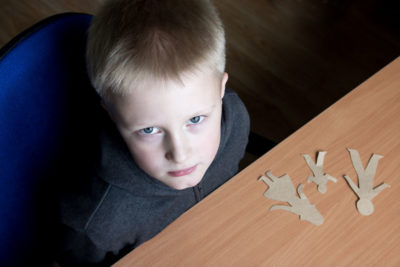Besides feeling emotional about the failure of your marriage, you probably have a lot on your mind, such as the division of marital property, whether the judge will award support and if so, how much, and how you will cope with being a single parent.
This article, from the office of a noted child custody lawyer in Philadelphia, will give you actionable advice about how to help your children through the upheaval and stress of the divorce process and beyond.
Stick to a Routine
First and foremost, it is important for children of any age to have a routine that includes school, chores, regular meals, and play. Many children also participate in other activities such as scouting, sports, art, dance, or music for their intrinsic value as well as for intellectual, social, and emotional development.
All of this should continue throughout the divorce process by maintaining your children’s usual routines to the extent possible. Your children are feeling uneasy about your divorce and wondering about the stability of their lives. Doing what you can to maintain their usual routines signals a lot to children. First, it will reassure them that they are not in danger and that they will continue on much as before. Second, they will feel that you care about their well-being and are not consumed or distracted from parenting them by your divorce.
Enlist the help of your ex to maintain your children’s routines. Undoubtedly you will both need help juggling work with the children’s schedules and commitments. Although it may be challenging for either or both of you to collaborate right now, remember that regardless of your relationship with one another, you will always be the parents of your children. Start working together now, and you have a greater chance of coming to an agreement regarding child custody and sticking to it.
Do Not Vent About Your Ex in Front of Your Children
Undoubtedly you are sad, angry, or resentful over the end of your marriage. Keep in mind that however you feel about your ex, it is wholly inappropriate to complain or vent about your ex in front of your children.
Why? For two reasons. First, they have a right to have a relationship with each parent, and this right is recognized under the law. Complaining about your ex in front of them may affect their opinion of your ex. This is called parental alienation, and divorced couples have been known to sue one another over this issue.
Second, it is a form of emotional abuse to subject your children to your anger with their other parent. They are innocent, having done nothing to cause your marriage to end. Do not involve them in whatever drama caused the break-up or is generated by the divorce process.
Do Not Argue With Your Ex in Front of Your Children
For the same reasons you should not complain about your ex to your children, you both should refrain from arguing with each other in front of them. They have probably heard enough arguing just prior to your decision to get divorced, and now they need the arguing to end and reassurance that you both still love them and are making their well-being a priority.
Make a pact with your ex to deal with any issues that arise away from the children. If that is not possible, the best you can do is remain calm and steer conversations to neutral topics such as the children’s schedules.
Should a contentious issue arise that must be resolved then and there, consider treating it as a teachable moment for your children. Being the adults in the room, you two can take the opportunity to model effective conflict resolution techniques, such as:
- Staying calm;
- Speaking respectfully in a normal conversational tone;
- Refraining from name-calling or put-downs;
- Listening carefully and repeating what the other said, “I hear you saying that…”;
- Compromising when possible;
- Acquiescing when possible;
- Agreeing to disagree.
Granted, this may be a challenge to pull off, especially in the early days of your new family situation, but the more you practice it, the better you will get at it. Remember, you are going to be co-parents of your children for the rest of your lives. Commit to working together.
Encourage Them to Talk about Their Experience
Last, although it is your relationship that is over, their relationship with each of you has changed too. The children will have to rely upon the custodial parent for more than is usual, and not have as much parenting time with the non-custodial parent. This will likely make them feel insecure or even frightened. If the divorce was contentious, they may see you both as emotionally unavailable to them and feel somewhat abandoned as a result.
Encourage them to talk with you about what they are going through. If your children are reluctant or unable to voice their concerns, or you feel you cannot help them considering your own emotional state, seek professional counseling. Children will often talk about sensitive subjects more readily with a sympathetic professional than with their parents.
The key to helping your children through the divorce process is to think of yourself as a parent first and a divorced person second. This will help you separate the emotions and stress of the divorce from your job as a parent to your children.
About the Author
 Veronica Baxter is a blogger and legal assistant living and working in the great city of Philadelphia. She frequently works with Lee Schwartz, a noted family law attorney.
Veronica Baxter is a blogger and legal assistant living and working in the great city of Philadelphia. She frequently works with Lee Schwartz, a noted family law attorney.

